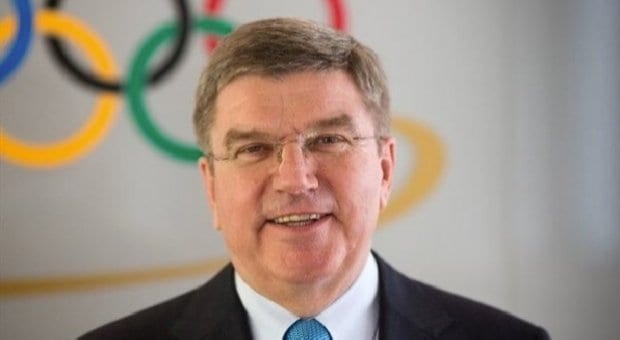A coalition of Russian organizations has called on the new International Olympic Committee (IOC) president to speak out in favour of LGBT rights, condemn Russia’s discriminatory laws, establish a Pride House at the Sochi Games and make explicit reference to sexual orientation in the Olympic non-discrimination policy.
The coalition met with Germany’s Thomas Bach in Paris the last weekend of November.
In their letter to Bach, the organizations say they are “gravely concerned” about the IOC’s repetition and endorsement of Russian authorities’ “vague assurances” that there’ll be no discrimination at the Games in February.
“The recently adopted ‘anti-propaganda’ legislation, as well as the public debate it has evoked, has already created an extremely hostile climate for LGBT persons in Russia. The ‘propaganda’ law is degrading in its nature, ascribing explicitly, in the national legislation, a fundamentally different status to LGBT persons, affirming their social inequality,” the letter states. “This highly discriminatory regime triggered an increase of organized violence against LGBT persons and their allies, which has been extensively covered in the media throughout the past several months.
“We believe that this legislation and the environment infringe and debase the Olympic values, and the IOC is in the unique position of both power and responsibility to ensure that the Winter Olympics 2014 do not embrace discrimination and violence against LGBT persons,” the letter reads.
The six organizations say they want “clear and detailed commentary” to questions they posed about the implications of the federal “gay propaganda” law for foreign and Russian citizens, as well as for the upcoming Games and beyond.
Here’s a partial list of the questions included in the letter:
- Should two individuals of the same sex either hold hands or kiss in public, would that be seen as contravening the law? As a legal matter, would the public dissemination of such same-sex attraction by television, newspaper or internet impact the legal response of Russian authorities?
- Would positive media presentation of same-sex families/ partnerships/ relationships, or LGBT identities of athletes, spectators or citizens be considered a violation of the law? If so, who would be accused – interviewees? Media companies?
- Can media coverage of the Games include examination of Russia’s discriminatory legal climate directed against LGBT people? Are foreign and Russian media companies/ reporters treated differently?
- Can a parent of an LGBT athlete — Russian or foreign — speak affirmatively of his/her child, including with reference to that athlete’s sexual orientation or gender identity, in pre- or post-competition interviews?
-
Can athletes, spectators or citizens carry gay pride flags?
-
Are private sector companies not free to include same-sex couples in their advertising related to sponsorship of the Games? Are they permitted to include pro-LGBT messages of solidarity in their advertising? Are they allowed to have Pride-themed designs for their products?
-
Is there a distinction in how any of these scenarios would be handled a) within the Olympic Village, b) in the broader Olympic security zones in and around Sochi or c) outside of those zones?
The following organizations all signed the letter to Bach: the Russian LGBT Network, St Petersburg’s Coming Out, Side by Side LGBT Film Festival, the Russian LGBT Sport Federation, Arkhangelsk’s Rakurs, and Out Loud.
A spokesperson for the Russian coalition says the talks with Bach were “valuable.” BuzzFeed reports that an IOC representative described the meeting as “constructive.”
At a press conference following a last visit to Sochi, the IOC’s Jean-Claude Killy said Russian officials had given assurances that there will be no discrimination. Killy’s comments followed a statement from former IOC president Jacques Rogge that he had received “strong written reassurances from the Russian government that everyone will be welcome at the Games in Sochi regardless of their sexual orientation.”
When Bach was elected to succeed Rogge as IOC president, he also touted the receipt of “assurances from the highest authorities in Russia.”
Speaking on the eve of a European Parliament debate in October on the “increase in homophobia and xenophobia in Russia,” Sophie in ’t Veld, of the parliament’s LGBT Intergroup, says the IOC has “chosen Russia’s side by shielding them from criticism.”
She also highlighted the IOC’s threat to penalize athletes who make political statements at the Games.


 Why you can trust Xtra
Why you can trust Xtra


